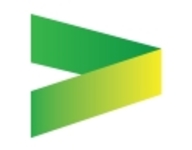

Semmle QL and SonarQube compete in the code analysis space, each offering unique advantages. Semmle QL appears to have the upper hand with more user satisfaction in pricing and support, while SonarQube is preferred for its comprehensive feature set.
Features: Semmle QL features powerful custom query capabilities for detecting detailed security vulnerabilities. It emphasizes tailored security insights that appeal to organizations focused on security analysis. SonarQube offers diverse language support and strong integration capabilities across various CI/CD tools, providing extensive code quality metrics that cater to users looking for a broad overview.
Ease of Deployment and Customer Service: Semmle QL provides a flexible deployment model allowing for personalized implementations, focusing on customized configurations. SonarQube offers straightforward deployment with extensive documentation that supports quick setup. It benefits from an extensive support network, enhancing its appeal to users seeking robust customer service.
Pricing and ROI: Semmle QL is considered reasonably priced, offering a solid ROI through specialized vulnerability detection. SonarQube's setup cost may be higher, but the comprehensive suite of features and faster deployment time are perceived as providing higher overall value. Semmle QL's emphasis on advanced security insights contrasts with SonarQube's broader application scope.
| Product | Market Share (%) |
|---|---|
| SonarQube | 17.9% |
| Semmle QL | 0.4% |
| Other | 81.7% |
| Company Size | Count |
|---|---|
| Small Business | 41 |
| Midsize Enterprise | 24 |
| Large Enterprise | 79 |
Our mission is to help everyone involved in software engineering create secure and trustworthy code without slowing down.
Combining the fields of databases, programming languages, data science and security we're making the world’s software truly searchable, so that even deep meaningful questions about security can be answered, helping software organizations better understand their code, engineering processes and people.
SonarQube provides comprehensive support for multi-language development, custom coding rules, and quality gates, integrated seamlessly into CI/CD pipelines. It empowers teams with clear insights through intuitive dashboards, identifying vulnerabilities, code smells, and technical debt.
SonarQube is renowned for its extensive capabilities in static code analysis, making it an invaluable tool for maintaining code quality. By fully integrating into development processes, it allows organizations to manage vulnerabilities and ensure compliance with coding standards. Its extensive community and open-source roots contribute to its accessibility, while robust dashboards facilitate code quality monitoring. Despite its strengths, feedback suggests enhancing analysis speed, better integration with DevOps tools, and refining the user interface. Users also point to the need for handling false positives effectively and expanding on AI-based features for dynamic code analysis.
What are SonarQube's main features?In industries like finance and healthcare, SonarQube aids in obtaining regulatory compliance through rigorous code quality assessments. It is implemented to enhance cybersecurity by identifying potential vulnerabilities, while ensuring code meets the stringent standards demanded in these fields. As part of a broader development ecosystem, its integration in CI/CD pipelines ensures smooth and efficient software delivery, catering to phases from code inception to deployment, effectively supporting large-scale and critical software applications.
We monitor all Application Security Tools reviews to prevent fraudulent reviews and keep review quality high. We do not post reviews by company employees or direct competitors. We validate each review for authenticity via cross-reference with LinkedIn, and personal follow-up with the reviewer when necessary.